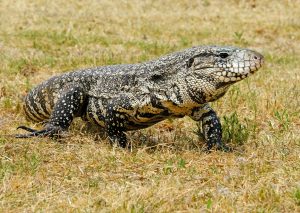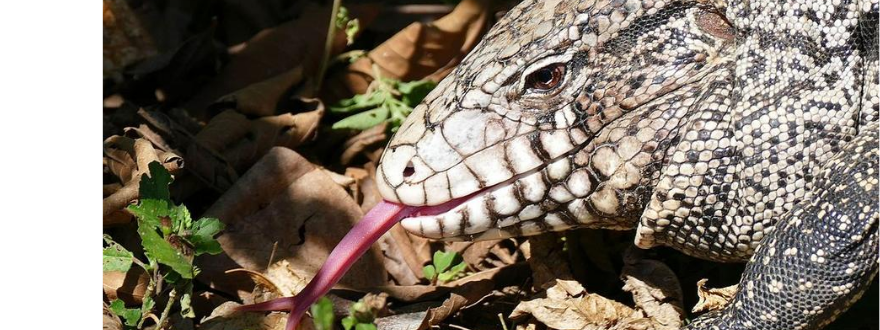 While residents in south Hillsborough County may be accustomed to seeing five-foot tegus wandering their neighborhoods, it’s a new occurrence for people in St. Petersburg.
While residents in south Hillsborough County may be accustomed to seeing five-foot tegus wandering their neighborhoods, it’s a new occurrence for people in St. Petersburg.
Five of the lizard-like animals have been captured so far, but at least two are still at large and “there may be many more,” writes Dan Quinn, who is coordinating the search for the Florida Fish and Wildlife Conservation Commission (FWC).
There is no evidence that there is a breeding population in St. Petersburg, and only one of the animals has been measured by FWC staff, he adds. It was just three feet long – they can grow up to five feet. It’s likely that the animals were released or escaped from a collector in the neighborhood. Until July 1, it was legal to own a tegu, but they are now regulated under Florida state law.
Although they appear to be aggressive when caged, there is no evidence that they are dangerous to people or pets, he writes. “While tegus are omnivores and eat a variety of plant and animal matter, we are not aware of any predatory attacks on pets or people in the state of Florida.”
That said, FWC recommends that owners keep a close eye on their pets and don’t allow them to roam outside alone.

FWC photo by Dennis Giardina
The remaining tegus are likely burrowed under a structure or hiding in debris. “We recommend covering outdoor openings in buildings and clearing yards of debris to minimize hiding and burrowing areas,” he writes.
Their diets may include fruits, vegetables, eggs, insects, and small animals such as lizards, juvenile tortoises and rodents. Cat or dog food is also part of their diet and should not be left outside overnight.
Released pets remain a primary source of introduced species in Florida. Owners can apply for a personal use permit or turn their exotic pet into FWC at no cost or penalty to reduce the possibility that they are released into the wild by owners.
FWC staff and volunteers are monitoring the 10 wildlife cameras deployed in the neighborhood. If you see one, call the exotic species hotline at 888-IveGot1 (888-483-4681). Please provide the exact location and take a picture if you can.
Learn more about invasive species management in the Tampa Bay region by attending a webinar sponsored by the Suncoast CISMA (Cooperative Invasive Species Management Area) on Wed, July 29, from 12:30 – 3:30 p.m.

